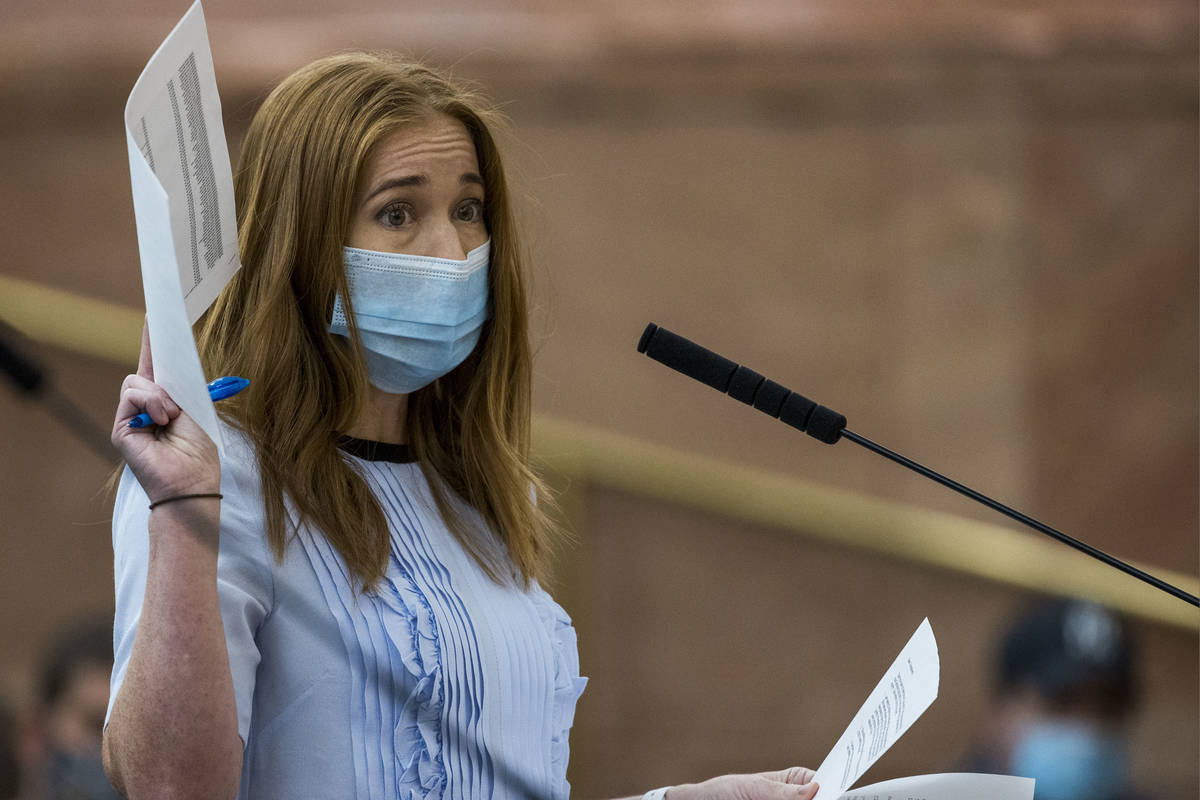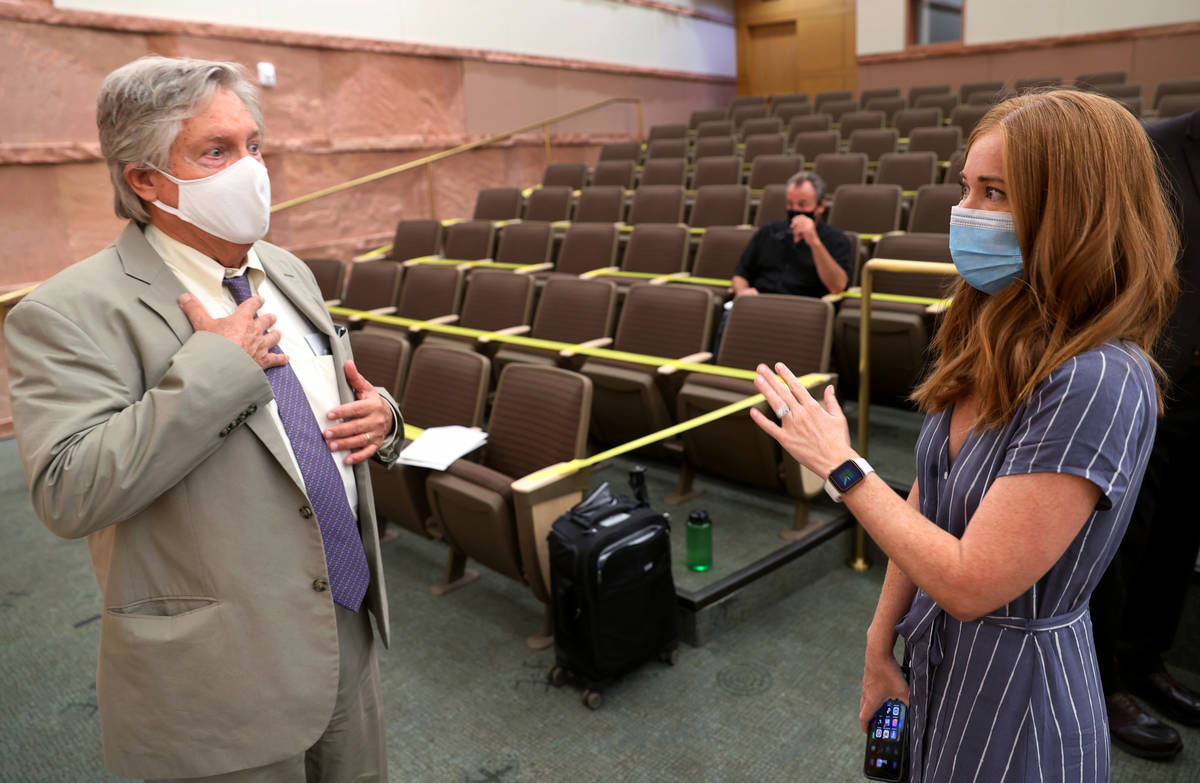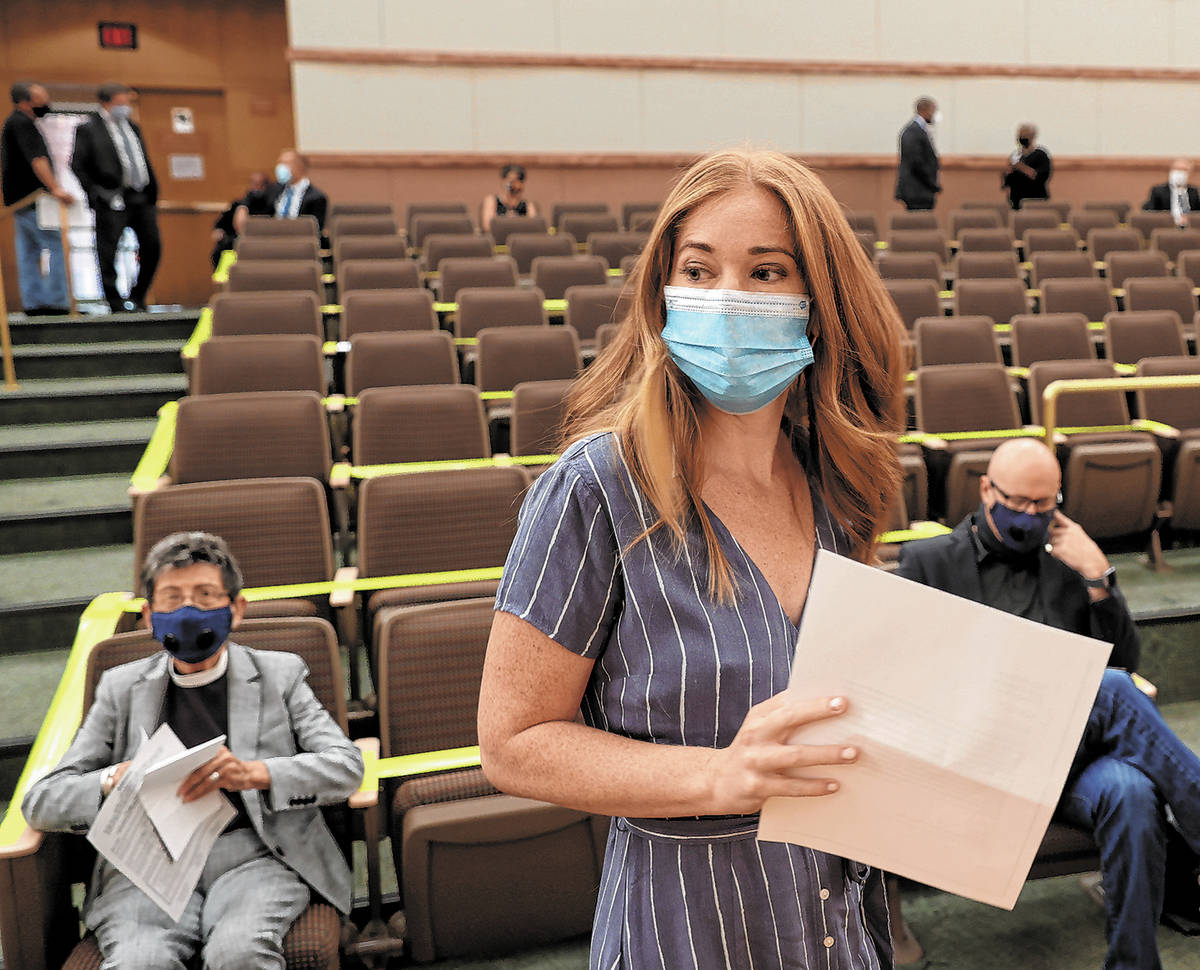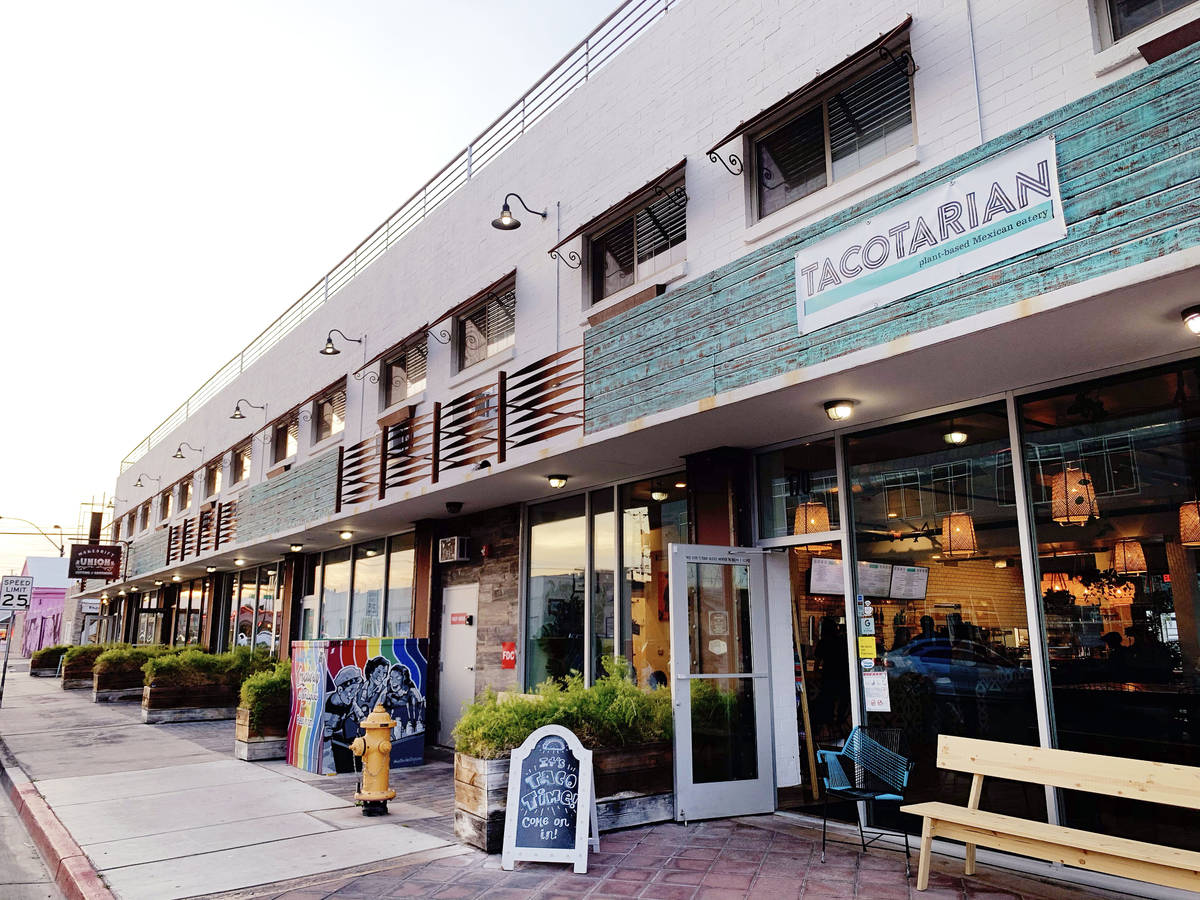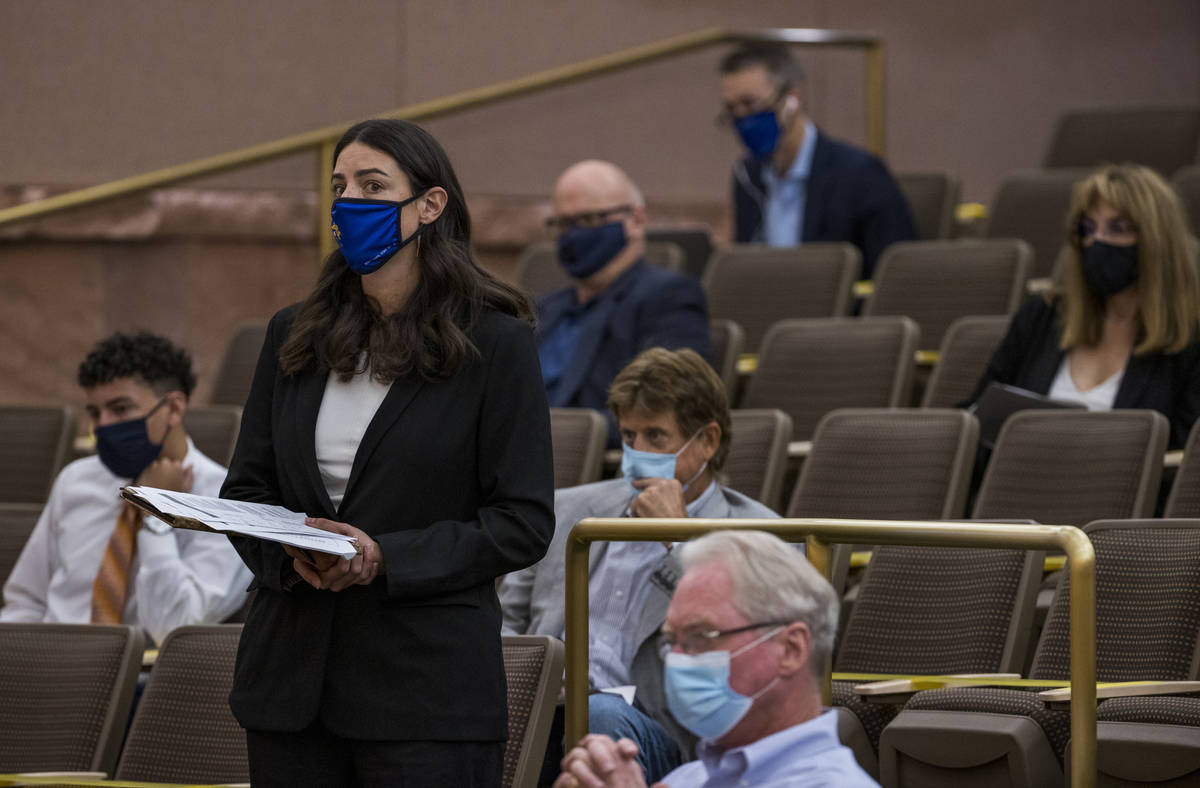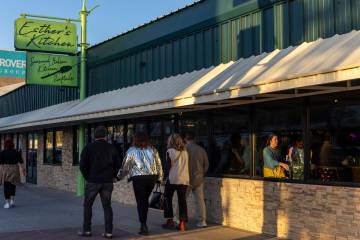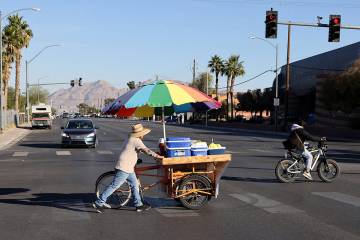Local restaurant owners continue battle against third-party delivery app fees
Efforts to limit the fees that third-party delivery companies can charge local restaurants have run into a few snags.
More than a month after Clark County adopted an emergency ordinance capping fees at 15 percent, moves to pass similar measures in Las Vegas, North Las Vegas and Henderson have stalled. Moreover, Clark County Commissioner Tick Segerblom says, one of the big delivery apps is not honoring the spirit of the ordinance that is in place.
“Grubhub seems to have just jumped the rails,” Segerblom says of the way the $6 billion food delivery company has responded to the ordinance. “They have their own legal interpretation (under) which they seem to think they can charge for marketing on top of the 15 percent.”
While other delivery companies, such as Postmates, Uber Eats and DoorDash, have responded to the ordinance by adjusting fees to keep basic delivery and other charges at or under that limit (excluding credit card processing fees, sales tax and a handful of other exceptions), many local businesses are still paying 30 percent or more to the tech giant for orders placed through its platforms.
Tacotarian owner Kristen Corral, who spearheaded the campaign to cap fees, was among the first to notice that her Grubhub bill wasn’t decreasing. Throughout August, the company continued to take 10 percent of each order from her Clark County location to cover delivery, and 20 percent additional to cover “marketing.” Corral had never signed on for any marketing services beyond the most basic listing on the Grubhub site and app.
When asked about the charges, Grubhub told the Review-Journal that marketing fees are not covered by the ordinance. Its representative pointed to the language of the statute, which specifically excludes “fees for listing or advertising the Retail Food Establishment on the Third Party Food Delivery Service platform.”
“The ordinance is very clear that the cap does not apply to marketing or advertising services that local restaurants choose to pay to drive more orders,” a Grubhub spokeswoman wrote.
Segerblom, Corral and the Nevada Restaurant Association don’t dispute that companies are permitted to charge fees in excess of the 15 percent delivery cap for special placement on their websites or apps. They argue, however, that the company is using the “marketing” label to hide higher fees for its most basic services.
“It’s not marketing. They’re listing you on a platform, along with thousands of other people,” Corral argues.
When she asked to opt out of the fee, or have it lowered, Grubhub agreed to drop it from 20 percent to 17.5 percent (on top of the 10 percent delivery fee), meaning 27.5 percent total was the best rate available.
The Nevada Restaurant Association’s Alexandria Dazlich says, “They’re essentially playing a shell game.”
Despite repeatedly stating that restaurants “choose” to pay its higher marketing fees, Grubhub wouldn’t provide any example of a Clark County restaurant paying 15 percent or less in combined delivery and marketing fees. Moreover, when asked if Grubhub clients are able to opt out of marketing fees entirely, the company refused to answer.
Segerblom says Grubhub’s interpretation violates the intention of the ordinance.
“And if they are unwilling to back down and live within our 15 percent rule,” he says, “then we’re just going to have to clarify it.”
He plans to raise the issue at a commission meeting Tuesday and set a vote on new wording to clarify the ordinance for Oct. 6.
Meanwhile, efforts to secure similar limits in Las Vegas, Henderson and North Las Vegas have hit a different hiccup. According to Corral, those cities are empowered to regulate only businesses that hold business licenses in their jurisdictions.
“The hurdle is that business licenses for third-party delivery apps, in the city (of Las Vegas), North Las Vegas and Henderson, are optional,” Corral explains. “I don’t see how, in those jurisdictions, we would be able to do any emergency order without having a business license.”
Jace Radke, public information officer for the city of Las Vegas, says that of the four largest third-party delivery apps, only Postmates is licensed to do business in the city, but he suggests the others (Grubhub, Uber Eats and DoorDash) “should be.” Until they are, however, he confirms that the city is not empowered to regulate them “under the current code.”
Contact Al Mancini at amancini@reviewjournal.com. Follow @AlManciniVegas on Twitter and Instagram.



